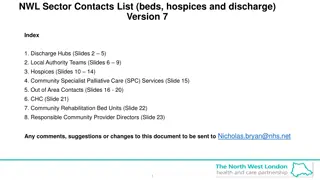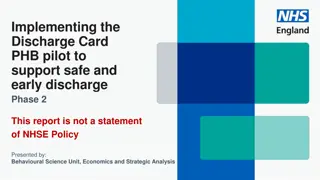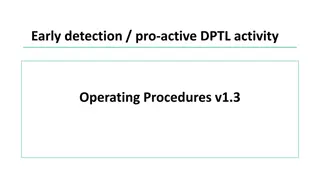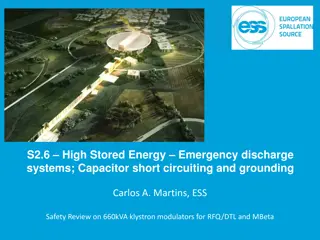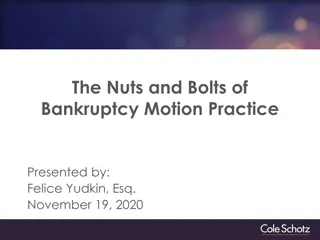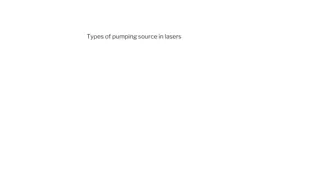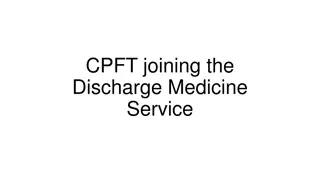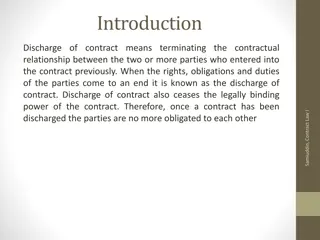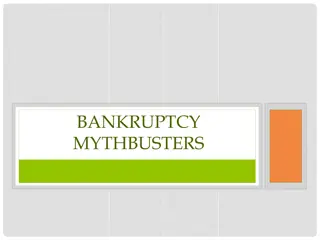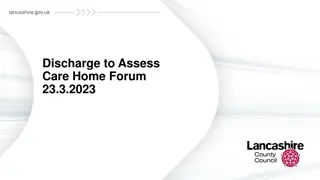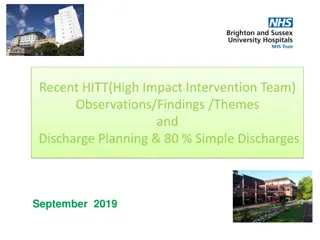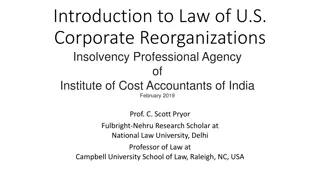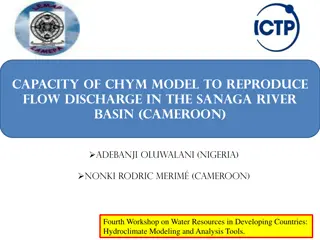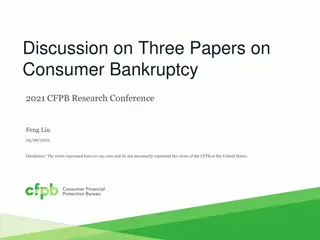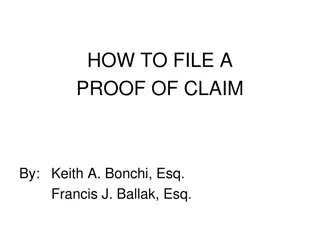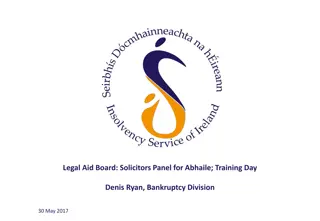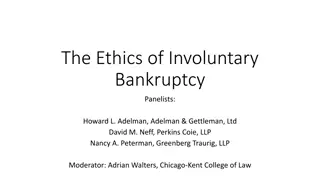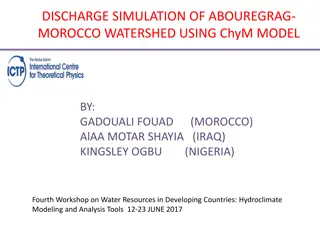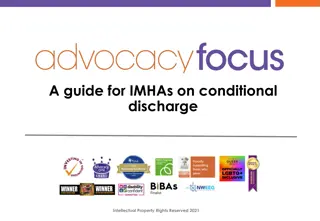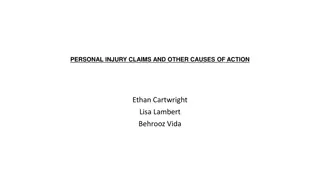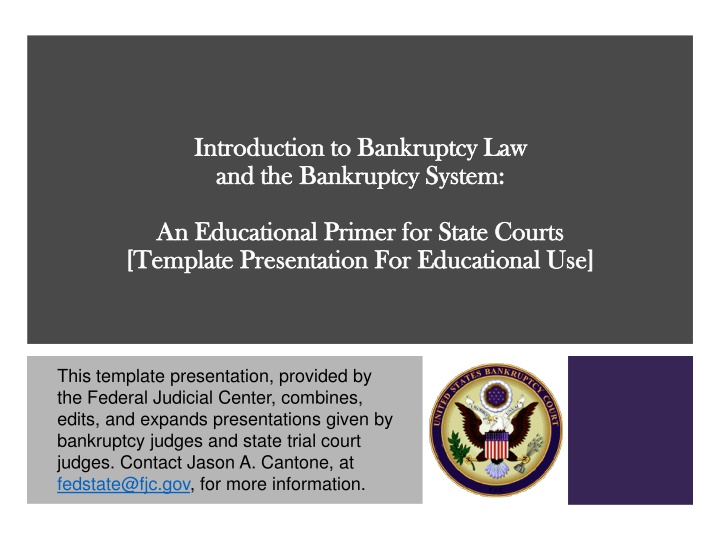
Bankruptcy Discharge and Legal Implications
Explore the intricacies of bankruptcy discharge, including its impact on personal liability for debt and the rights of creditors. Learn about the key legal principles governing bankruptcy discharge and how it affects debtors, creditors, and the legal system as a whole.
Download Presentation

Please find below an Image/Link to download the presentation.
The content on the website is provided AS IS for your information and personal use only. It may not be sold, licensed, or shared on other websites without obtaining consent from the author. If you encounter any issues during the download, it is possible that the publisher has removed the file from their server.
You are allowed to download the files provided on this website for personal or commercial use, subject to the condition that they are used lawfully. All files are the property of their respective owners.
The content on the website is provided AS IS for your information and personal use only. It may not be sold, licensed, or shared on other websites without obtaining consent from the author.
E N D
Presentation Transcript
Introduction to Bankruptcy Law Introduction to Bankruptcy Law and the Bankruptcy System: and the Bankruptcy System: An Educational Primer for State Courts An Educational Primer for State Courts [Template Presentation For Educational Use] [Template Presentation For Educational Use] This template presentation, provided by the Federal Judicial Center, combines, edits, and expands presentations given by bankruptcy judges and state trial court judges. Contact Jason A. Cantone, at fedstate@fjc.gov, for more information.
Content Note This presentation only addresses the bankruptcy discharge. A full presentation with all six topics (bankruptcy overview; automatic stay; bankruptcy discharge; family law; foreclosure; additional considerations) is available at fjc.gov/fedstate, as well as separate presentations for each of those topics.
Section 524(a): A bankruptcy discharge voids a judgment to the extent that such judgment is a determination of personal liability for unsecured debt that was actually discharged under the relevant chapter. The Bankruptcy Discharge The discharge is a permanent statutory injunction that prevents any legal action or communication with the debtor for the purpose of collecting a discharged debt does not protect codebtors
If there is a dispute about whether a debt in an action was discharged, should you resolve the issue? Only bankruptcy courts can determine whether to grant or deny a discharge in bankruptcy. In many circuits, if a bankruptcy court later disagrees with the determination that it doesn t apply, the order will be declared void as being in violation of the stay.
If there is a dispute about whether a debt in an action was discharged, should you resolve the issue? State courts have concurrent jurisdiction to interpret a plan of reorganization. State courts may have concurrent jurisdiction to hear and resolve the question provided its basis is not one of the types reserved exclusively to the bankruptcy court.
The discharge only affects personal liability for debt. Liens ride through bankruptcy. Discharge of Secured Debts Only deficiency liability is extinguished. Lenders must be careful not to violate the discharge when communicating with discharged debtors.
Category One Sixteen types in this category, including recent taxes and related penalties debts not scheduled in bankruptcy case, except in a no-asset case domestic support obligations death or personal injury caused by drunk driving, boating, or flying fines, penalties, and forfeitures payable to and for the benefit of a governmental unit federal restitution awards student loans (unless nondischarge would impose undue hardship on debtor and dependents) fees between filing of bankruptcy and loss of both title and possession by condo owner Non- dischargeable Debts 11 U.S.C. 523
Category Two Three types of debts in this category. They are not self-effectuating like those listed in Category One. Non- dischargeable Debts fraud of specified kinds fraud or defalcation by a fiduciary, embezzlement, or larceny 11 U.S.C. 523 willful and malicious injury to person or property
Preclusion and the Discharge State court finding of common-law fraud, award of punitive damages, etc., may result in nondischargeability Preclusion principles apply in bankruptcy Precise findings are critical in the order, judgment, or jury verdict form
A Chapter 7 debtor may waive discharge of a particular debt by entering into a reaffirmation agreement. In general, a debtor will only reaffirm debts secured by a house or car. 11 U.S.C. 524(c) imposes many requirements for creating an enforceable reaffirmation agreement. The debtor is given a period of time to rescind. A reaffirmation agreement may be enforced in any appropriate court after the automatic stay is lifted and is not subject to the discharge injunction. Reaffirmation Agreements
Additional Resources Federal Judicial Center website on federal- state cooperation: https://fjc.gov/fedstate National Center for State Courts resource guide on foreclosures: https://www.ncsc.org/Topics/Financial/Foreclos ures/Resource-Guide.aspx
This presentation was organized by Federal Judicial Center Senior Research Associate Jason A. Cantone, with considerable assistance by a number of federal and state judges and court personnel (see note for slide 1). Thank You Questions about the presentation and its use can be directed to Dr. Cantone, at fedstate@fjc.gov. We would also like to hear from you if you find it helpful or have any recommendations to improve it.

